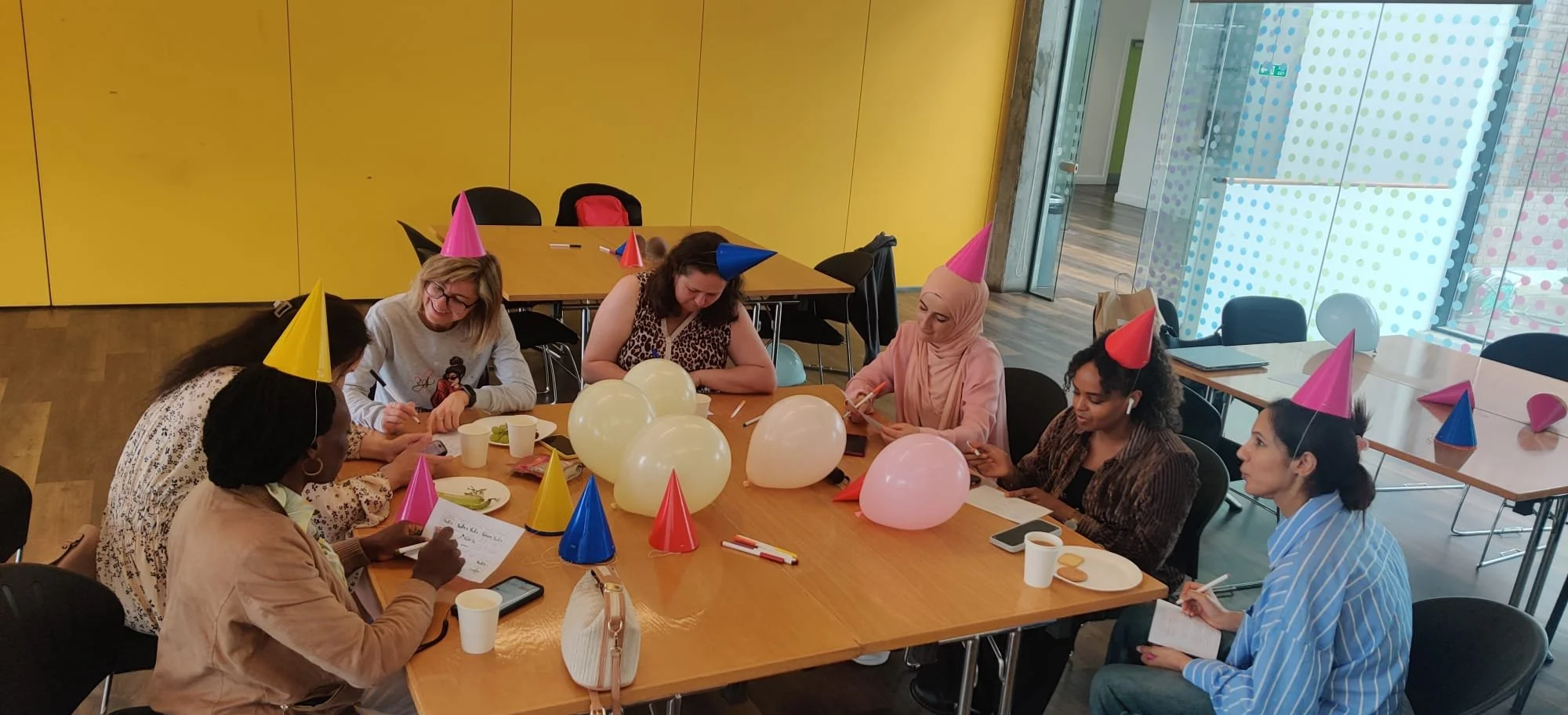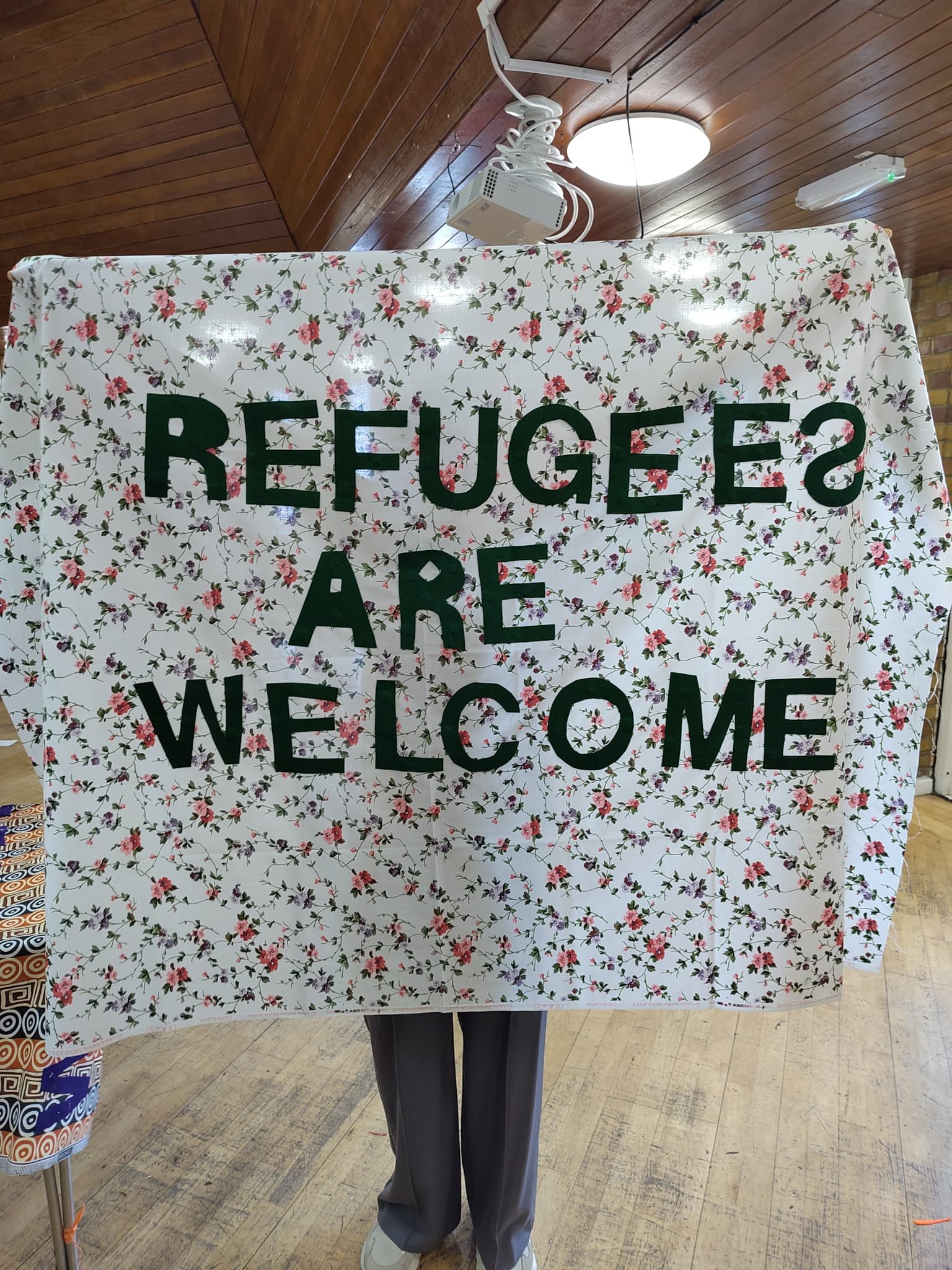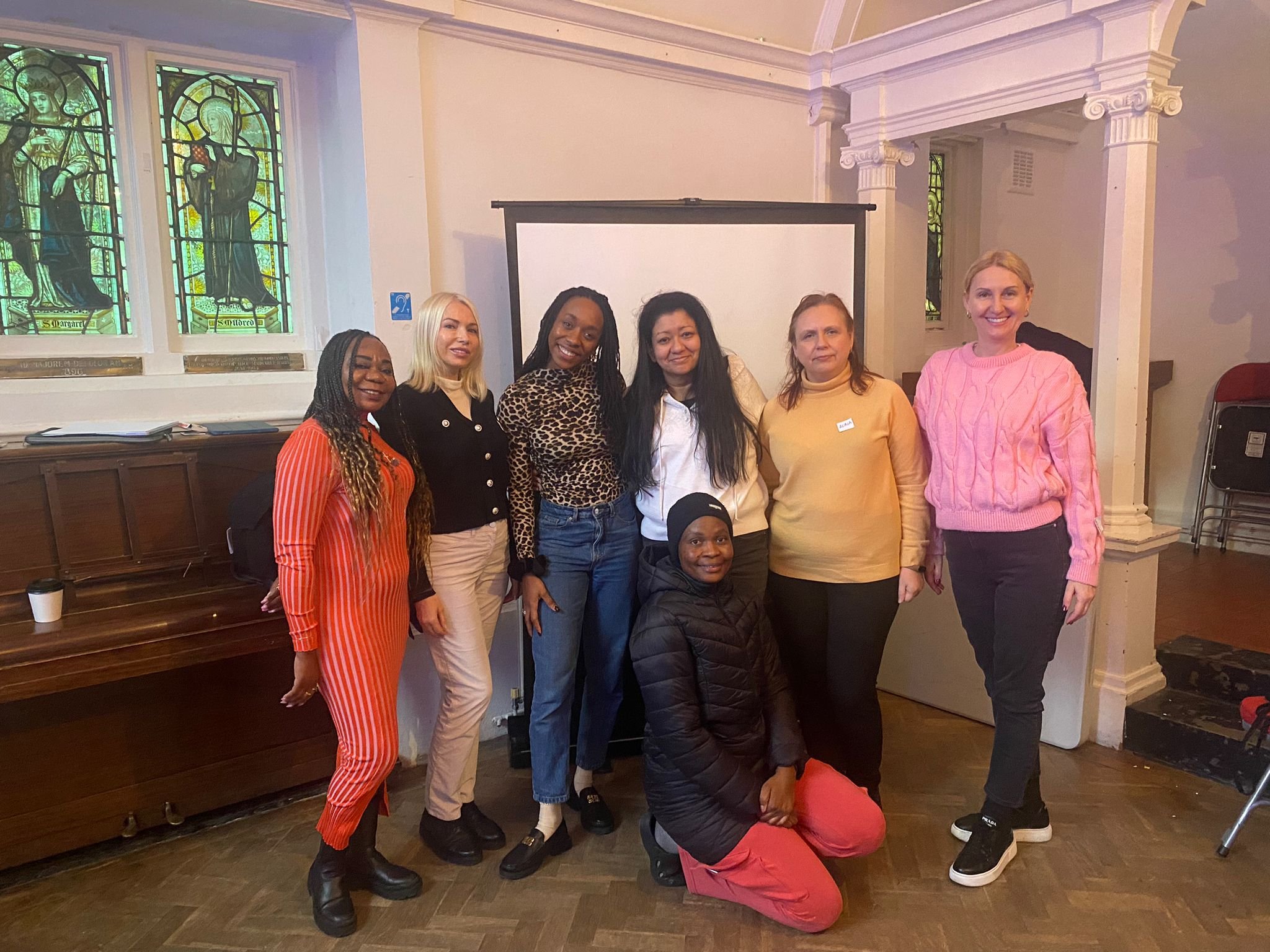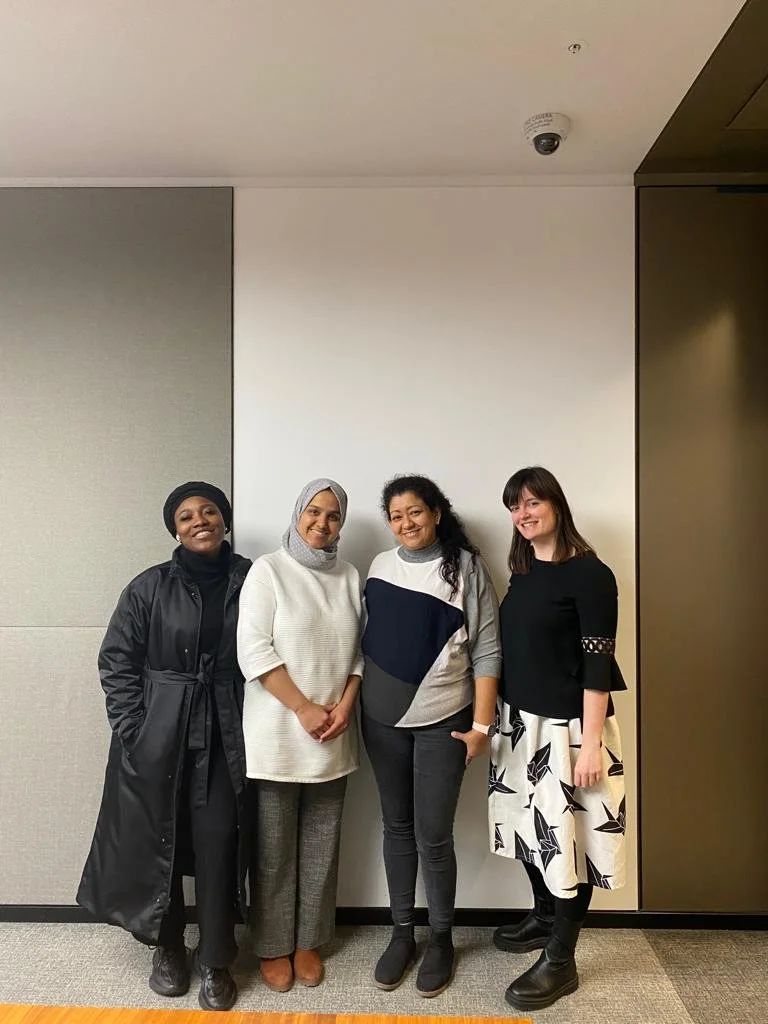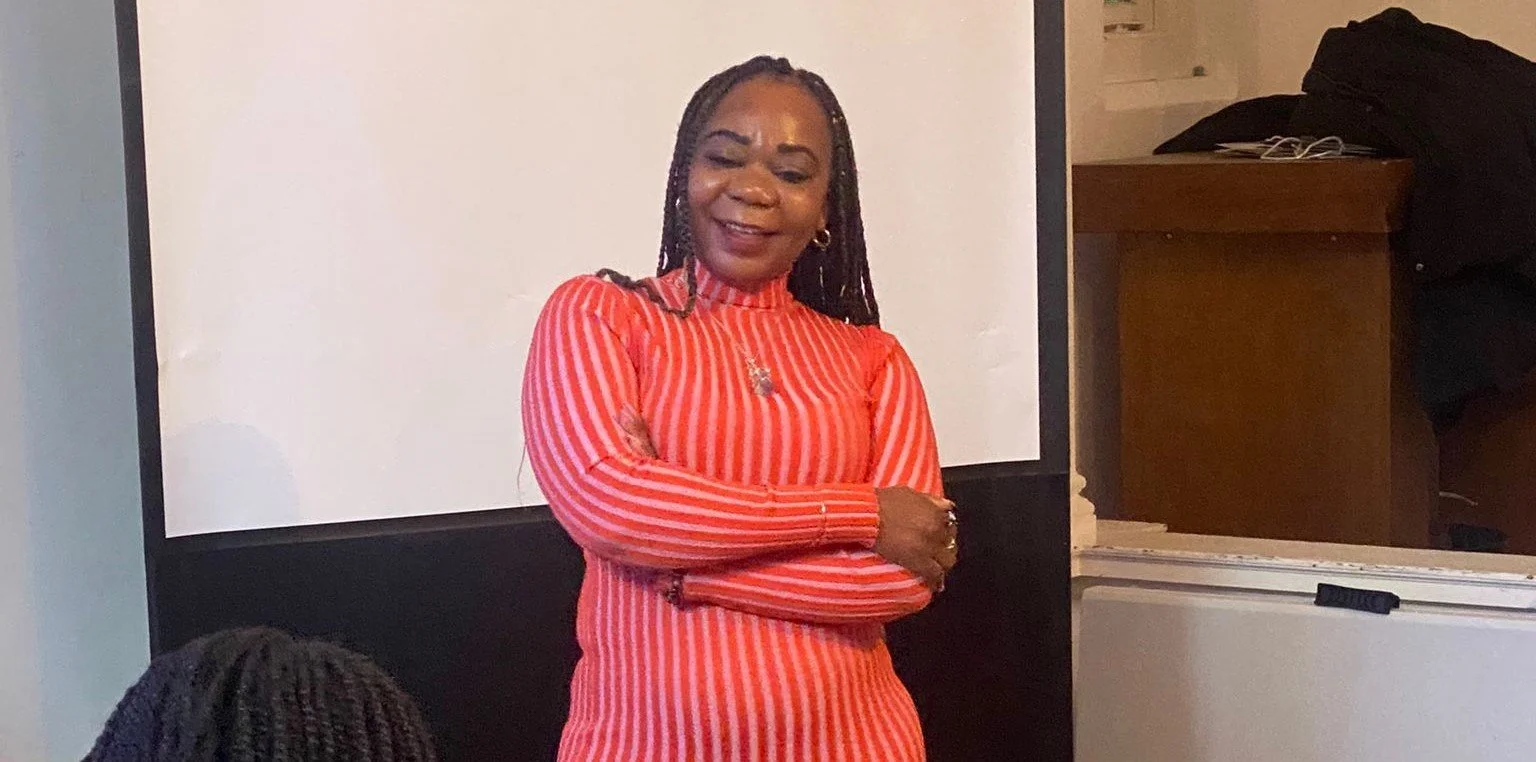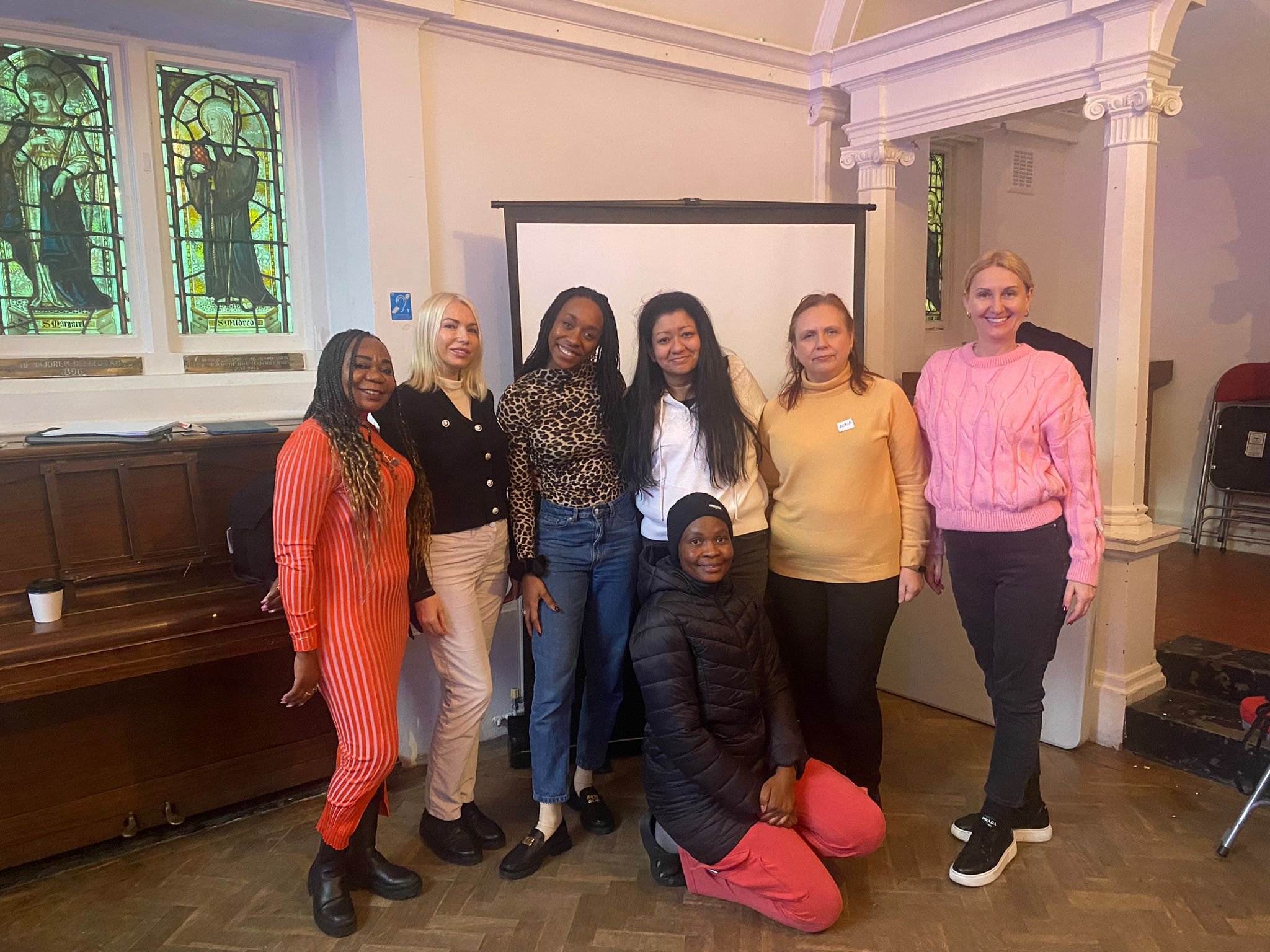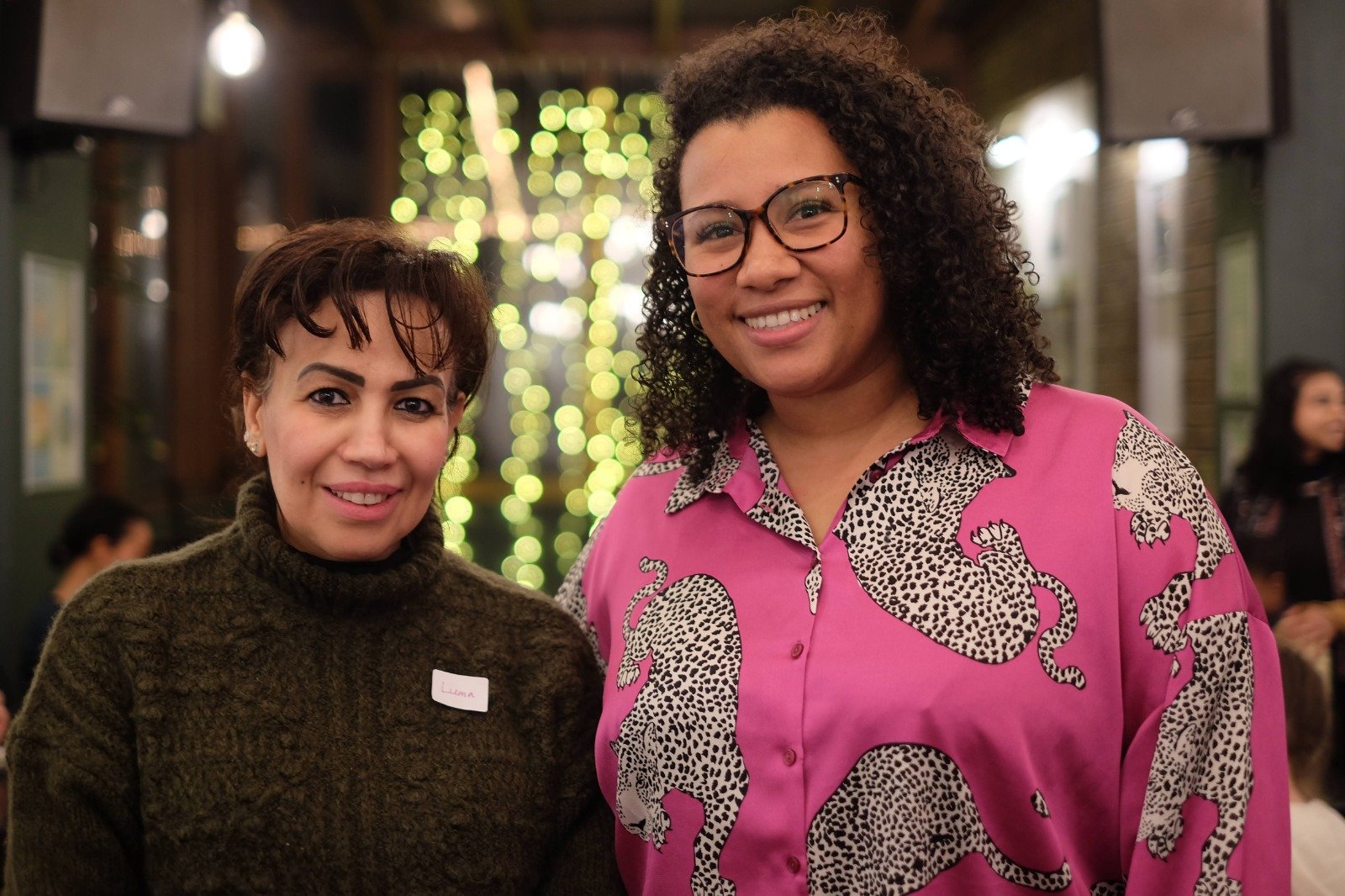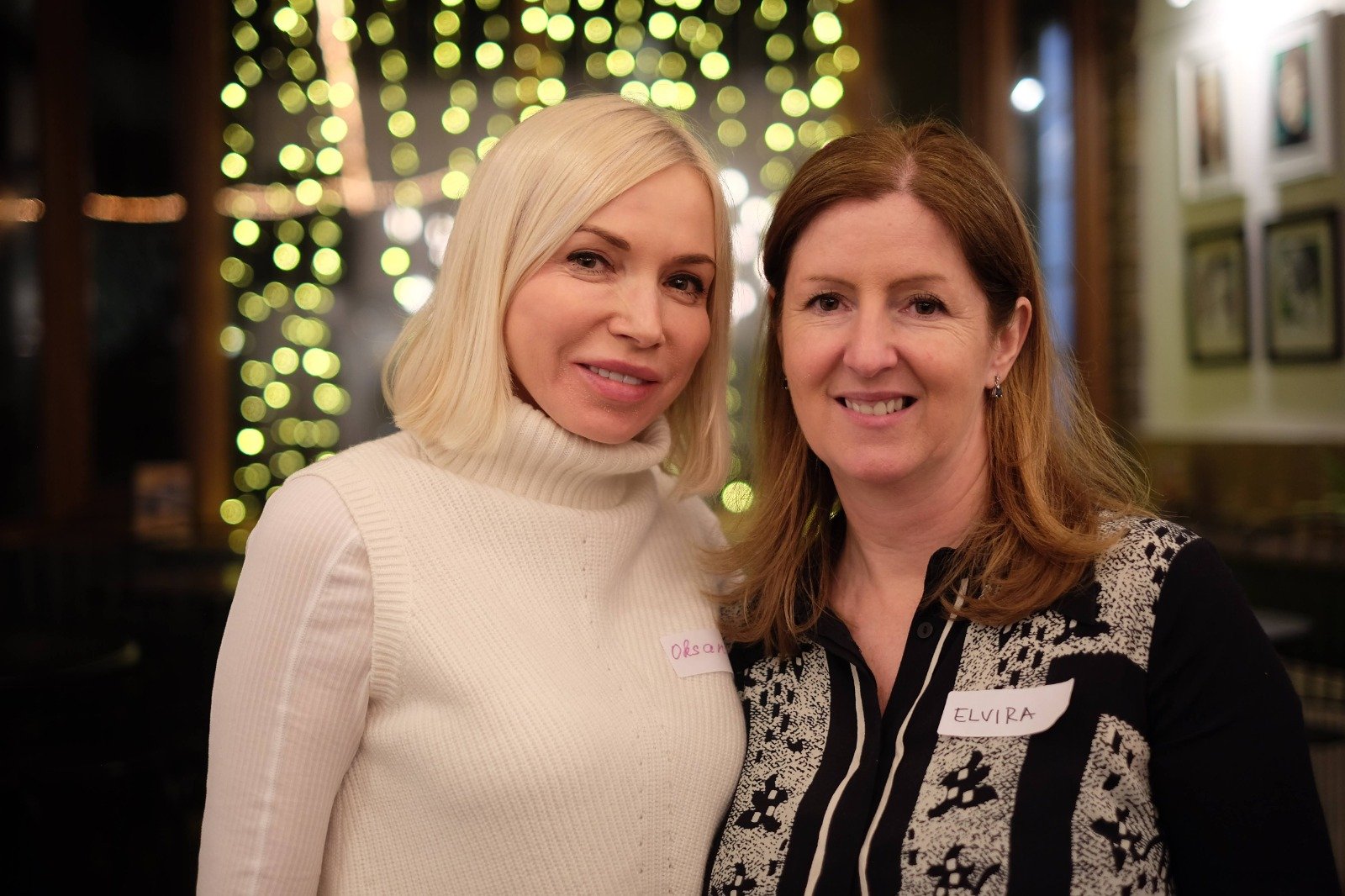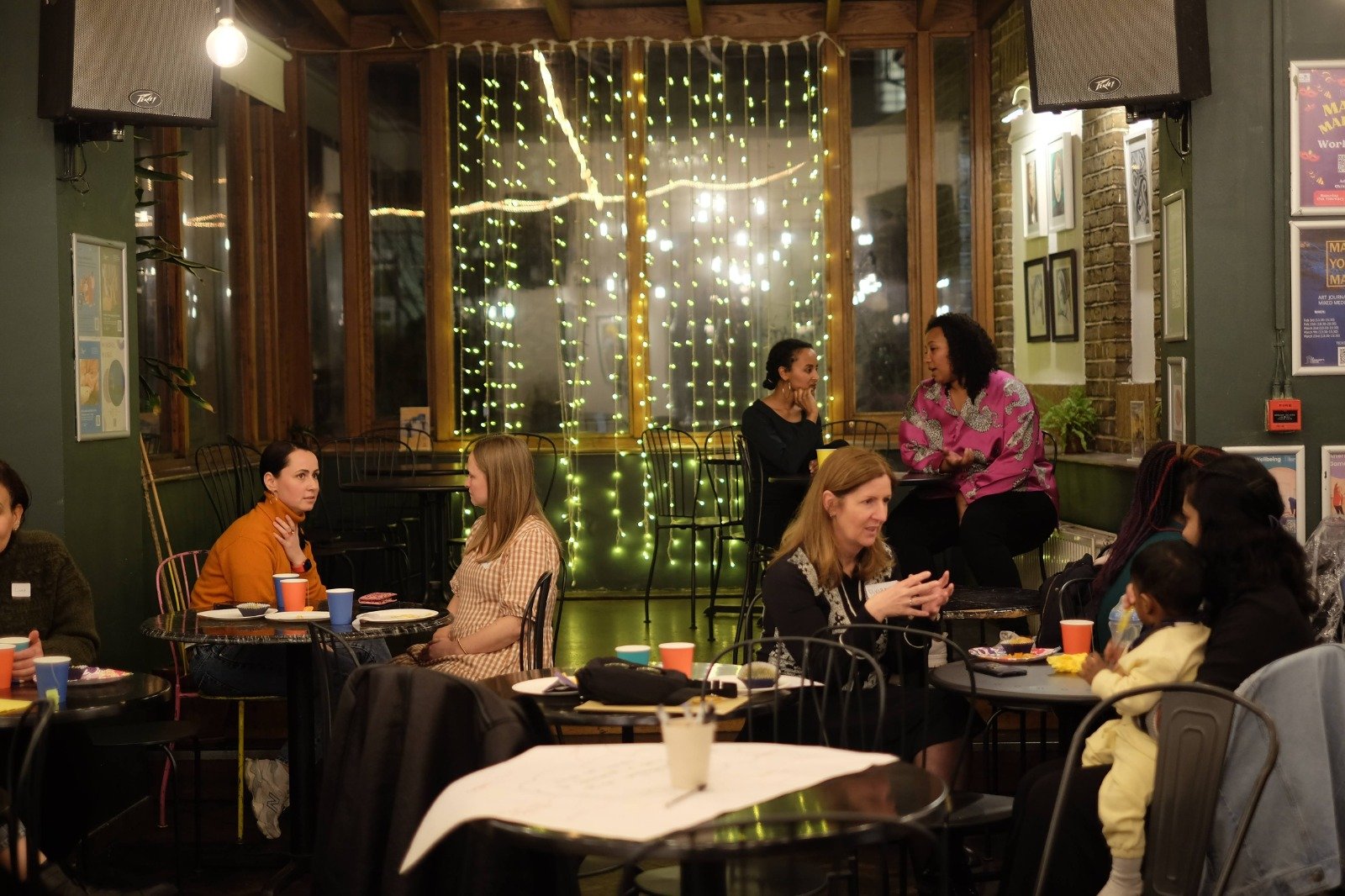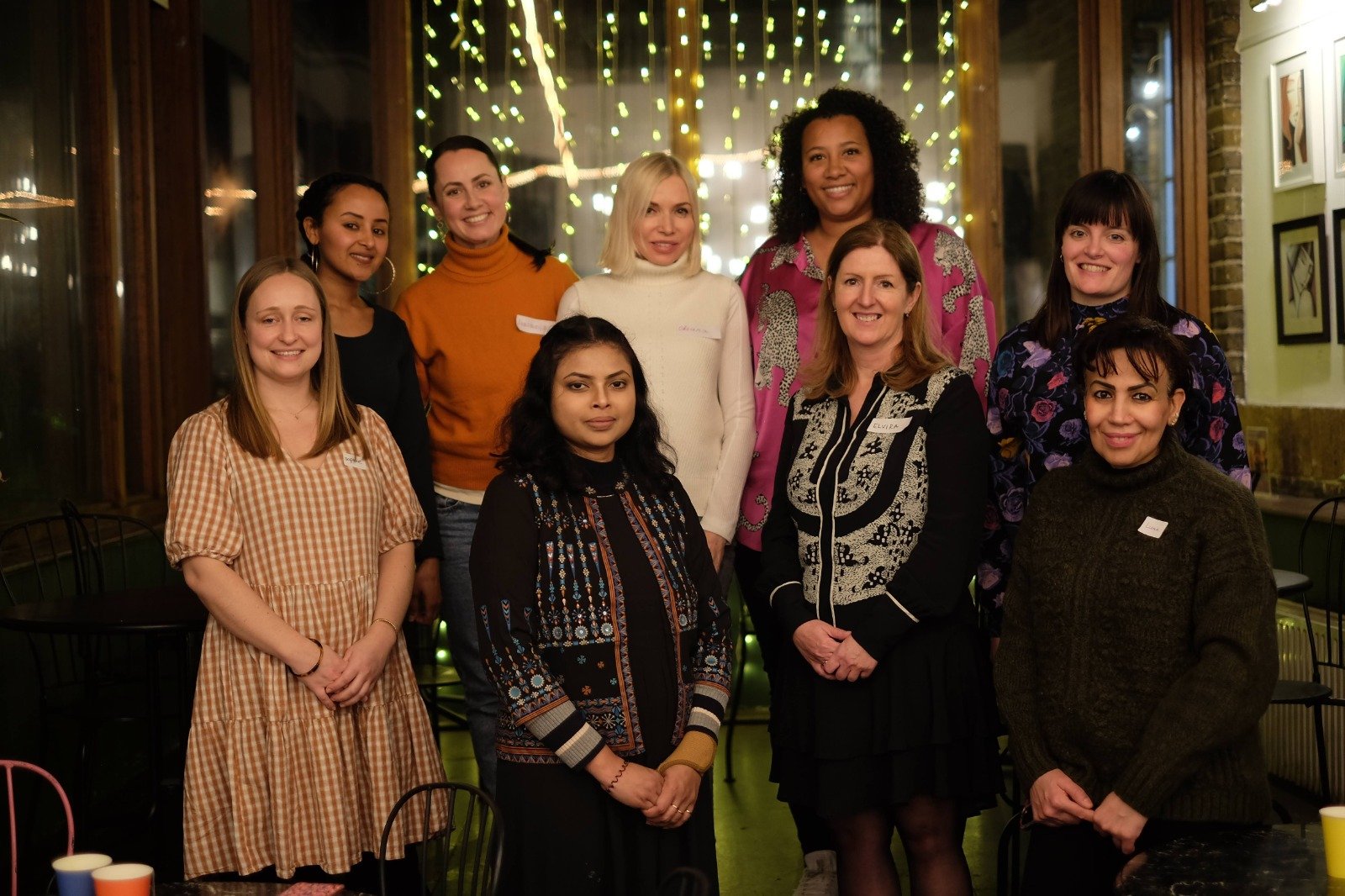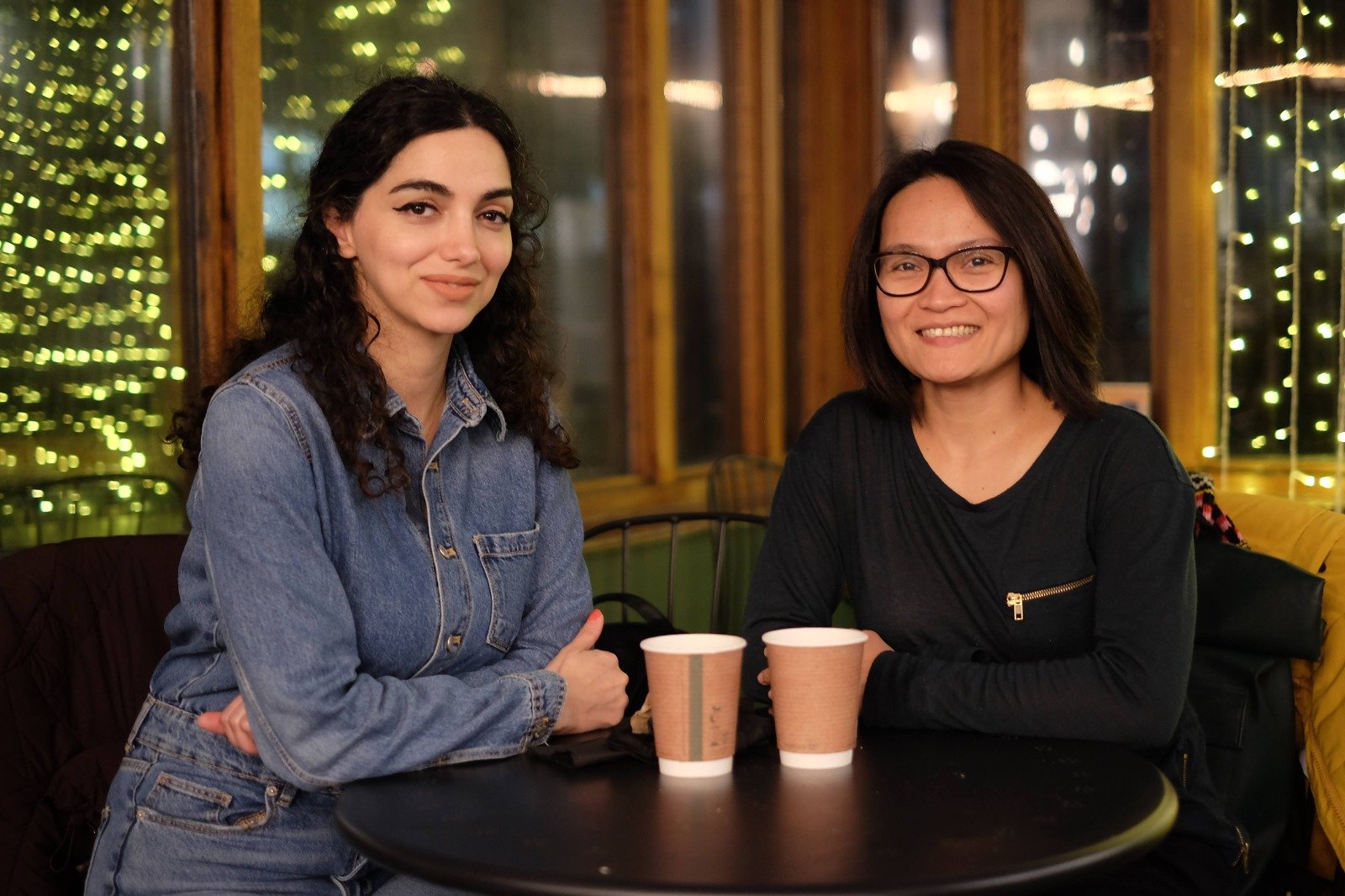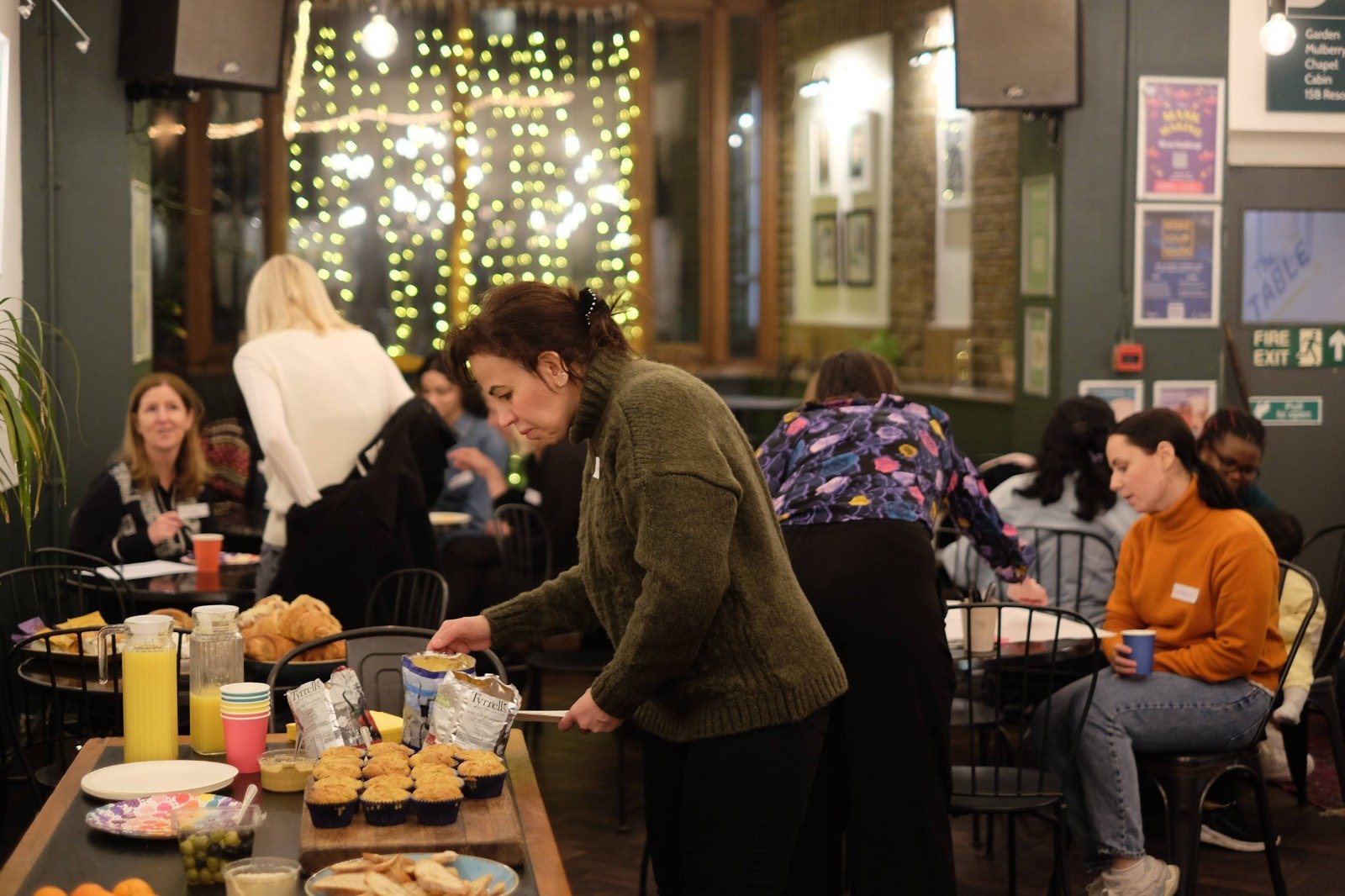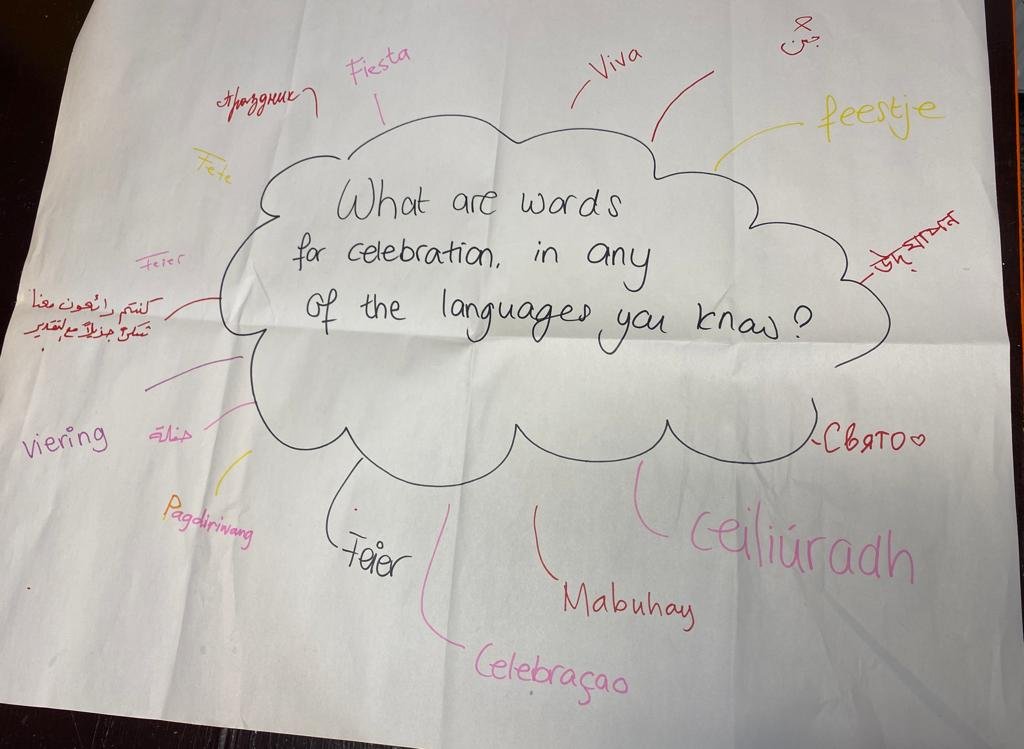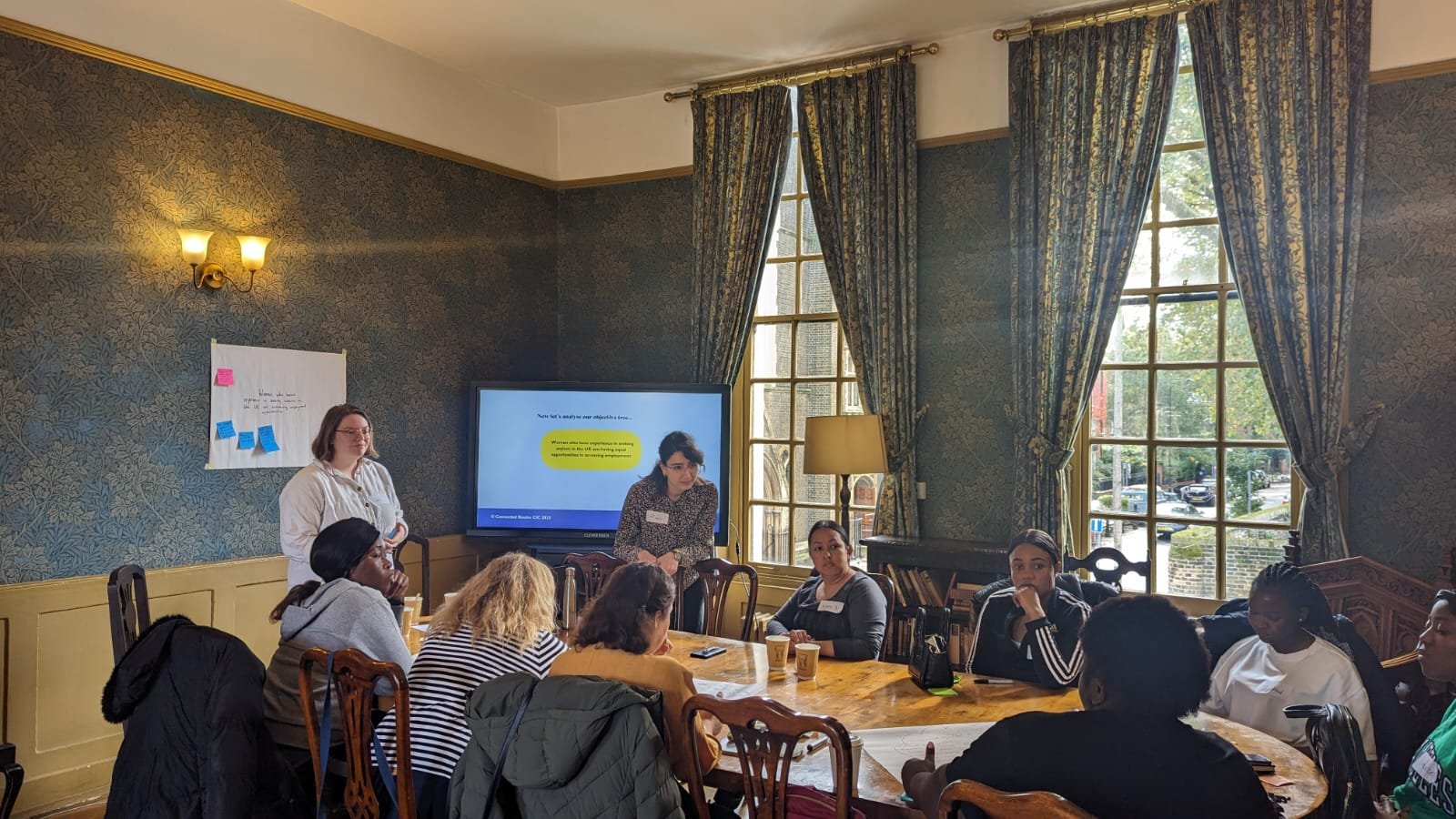Routes blog
Call to action: what we can all do to support the human rights of those affected in the Middle East and globally
Statement from Routes on the importance of accountability under international law - and what we can do to demand the UK uphold its international legal duties.
Today, we are sharing a statement about the importance of accountability under international law - and what we all can do, as UK residents and citizens, to demand the UK uphold its international legal duties.
This statement from Routes comes in a week, in which we have seen further attacks on civilians in the North of the Gaza Strip, whilst there has been an unprecedented forced entry into a UN peacekeeping base in South Lebanon. The incessant bombing also creates further risks for those who survive: the release of asbestos is cancer-inducing and will have long-lasting impacts on civilians for years to come.
At Routes, we feel the impact of the further escalation in Gaza, Lebanon and the wider Levant region in our community. We have also seen a lack of accountability under international law, including the Convention on the Prevention and Punishment of the Crime of Genocide, which also has a direct implication for the UK Government.
We call for an immediate ceasefire in the Middle East and an end to the UK’s complicity in the violence through arms sales and diplomatic support.
We are committed to standing in active solidarity with everyone experiencing violence and displacement. We recognise that calls for a ceasefire, calls for accountability under international law, and calls for refugee rights are all part of the same picture.
Whilst our statement today has a focus on the Levant region, we recognise that calls for non-discrimination and equal application of the law should be for everyone. We keep in our thoughts everyone in our community who are affected by events in Sudan, Ukraine and other regions of the world. No-one is free until everyone is free - and we’ll be sharing resources that are relevant for supporting safety for communities in the Middle East and beyond.
We invite everyone reading this to be part of this commitment. Please find below a few resources and ways to engage:
Join the workshop ‘How to talk about Palestine’ organised by Shado Mag and Makan Rights, on Wednesday 23rd October, from 7:30 - 9 PM on Zoom.
Message your Member of Parliament and the UK Foreign Office. You can do this if you are a resident in the UK, with a UK postcode. Many organisations have templates available, that you can use to share your concerns and calls to action.
Attend national demonstrations happening in your area. Follow Palestine Solidarity Campaign to find out when and where they are happening. You can also borrow a banner from London Protest Banner Library to take to the marches.
Keep educating yourself, by following organisations and individuals who are sharing relevant updates. A good place to start might be this post from Give Your Best, or the British data journalist, writer and illustrator Mona Chalabi, who shares important infographics about the situation in Gaza, the Levant, Sudan and more.
See if there are local campaigns that you can support. Change is built by millions of people acting simultaneously at lots of different levels - locally, nationally and globally.
Maintain grounding practices that allow you to stay engaged. Those of us who are not directly affected or from affected communities need to ensure that we do not get numb by the current news cycle. Instead, we need support structures so that we can continue to engage and keep speaking out for human rights and human dignity.
Uplift the work from organisations such as Healing Justice London and Shubbak Festival, who are organising support spaces for affected communities, as well as embodied rage spaces, for material arts to be used to process rage in community.
If this is possible for you, please support people who are directly affected via direct aid initiatives, or by supporting relief organisations to do their work.
We want to live in a world that doesn’t force people from their homes, but will also continue to fight for the rights and dignity of displaced people worldwide. We hope you join us in this commitment, in a volatile time where it is important to speak up.
If you are safe and able to do so, please make sure the current news is part of your daily conversations - with work colleagues, in your local communities, and in other groups where you hold power or influence.
In this important time for human rights, we need to work together to keep the UK Government, and other actors, accountable for their duties under international law.
There is not one way of getting engaged - there are many ways to do so, from political to creative - and we need all of your talents, as we pull our resources together for a better world, in which people can live in safety and free from violence.
Statement on the far-right riots
Statement from Routes on the far-right riots in the UK.
The past few weeks have been filled with fear as migrants, Black folks, people of colour and Muslims are being targeted by far-right violence across the UK. We stand in solidarity with all those affected, everyone who’s been counter-protesting, and those working to ensure those in asylum accommodation are protected from the rioters. At Routes, we remain committed to supporting people from asylum and refugee backgrounds in the pursuit of a fairer and more welcoming asylum system. We will continue our efforts with even greater determination, in the face of these events.
We also feel it’s important to do more than just put out a message of solidarity. Here are some resources, care sessions and organisations we want to amplify:
Healing Justice London are offering spaces for breathwork and embodied rage that centre racialised and global majority people. Please spread the word for anyone that might benefit from these.
Muslims Against Facism have created an Allyship in the Workplace resource. We encourage you to read it and use it to advocate for your employer to do what it can to care for people affected
Support organisations like Hope Not Hate and Stand Up To Racism who have been organising counter protests and resources to support those working with and living in places targeted by violence.
The violence we are currently seeing has not started overnight; it is the product of years of racist ideologies and demonising rhetoric in our politics and media. It’s no coincidence that the riots have been targeting asylum accommodation.
Routes has a 45 minute talk about the asylum system that we are offering to organisations for free in light of recent events. The talk provides a clear and accessible overview of the entire asylum process, delving into legal terms and definitions, exploring the meaning of 'refugee' and dispelling misconceptions.
Please contact hello@routescollective.com for more information and to schedule. We hope that in this small way we can contribute to stopping the spreading of misinformation that fuels the horrific, but unfortunately not surprising, events we’ve seen over the last few weeks.
Routes Mentor Mel: acknowledging other people's skills and power
Postdoctoral researcher Mel Ramasawmy reflects on her time on the Routes Mentoring Programme, and what she learned from the immersive leadership training that the programme provides for mentors.
Mel Ramasawmy is a Postdoctoral Researcher at Queen Mary University of London. She joined Routes for our 12th Mentoring Programme, which consists of training for mentors and practical learning in supporting a fellow refugee woman as a mentee. Mel was paired up with Saba, and supported her mentee on goals related to higher education. In the meantime, she worked on her own personal confidence and leadership skill set for being an inclusive leader. In this blog, Mel reflects on her time on the Programme and the key areas of growth.
Anticipating the journey
I started my journey with Routes feeling both excited to start a new mentoring relationship, and nervous about having an appropriate response to the challenges that my mentee may have faced. The information and training provided by Routes was invaluable in understanding the current context for refugees in the UK, and the responsibilities and boundaries of the mentoring. When I was matched with Saba, and learned that she wanted to return to higher education, I felt hopeful that I might be able to share some relevant experience, as a health researcher working at a London university.
In my own career, I have benefited from the insights and encouragement of mentors in the past. This has come in many forms such as: providing a safe space to share my worries; being a touchpoint for me to measure and acknowledge growth; advocating for me (or giving me a friendly push to advocate for myself!); and providing guidance on how to navigate career development in different professional cultures.
This is something I wanted to pay forward.
Meeting for the first time
I suggested the Wellcome Collection as the location for our first meeting. Exploring the exhibitions on science, medicine and art allowed us to talk in a relaxed way and find things we had in common. Afterwards we sat in a quiet area and talked about our reasons for joining the Routes programme and how Saba was hoping to benefit from it. We thought of some potential actions we could take over the next ten weeks which would move her closer to her goal.
In our time together we have continued to explore medical exhibitions in London as well as meet online for more focussed sessions, such as writing a CV and personal statement.
Holding space for goal-related work
A big theme across our time together has been dealing with delay. I feel like we both learned to appreciate the value of taking small steps towards progress, rather than moving rapidly towards our goals.
Saba has had to overcome a number of barriers before applying for the Master’s course that interests her. ‘Sitting in the waiting room’ is difficult and it can be hard to remain motivated. Although the experiences and challenges are very different, this resonated with me as academic careers are precarious and require living with uncertainty.
One of my worries at the start of the programme was about making suggestions and recommendations that come from a place of privilege and which might not be possible for others. I drew on some of the reflective tools and skills from the training days, to help me find an approach that was about providing a supportive space, rather than solving problems.
Acknowledging other people’s skills and power
As Saba and I reflected on our experiences together to write our blog (they wrote a brilliant blog together about their shared learning, which you can find here), I was touched to hear that she had found this helpful in acknowledging her skills and power. One of my aims in participating in the programme was to explore tools and leadership styles that felt authentic to me as a person. The trust and openness Saba showed me while working together, has helped build my confidence too.
As a researcher, I am interested in how differences in access and use of health technology may contribute to unfair and avoidable differences in health across the population. To understand what happens in the ‘real world’, the ability to work with people from a wide variety of backgrounds is crucial. Good research in health takes a ‘Patient and Public Involvement’ approach, which means that people with relevant experience contribute to what questions we ask, how we do the research, how we share our findings and what we do with them. I hope that utilising inclusive leadership practices, to acknowledge the expertise of people with lived experience, and involve them in decision-making, can help make these relationships more meaningful and improve the relevance and impact of our research.
I am proud of what Saba has achieved in this short time, and feel fortunate to have played a small part. I’m excited to see what she achieves over the next few years!
As mentioned, Saba and Mel also wrote a great blog together, in which they explore their thoughts on education, goal-setting and confidence building. You can read their reflections on their time together here.
Routes mentoring pair Saba and Mel in conversation about education, goal-setting and confidence-building
Mentee Saba and mentor Mel reflect on their time on the Routes Mentoring Programme, in a conversation about education, goal-setting and confidence building.
Mentee Saba and mentor Mel met on the 12th Routes Mentoring Programme. They were paired up to work on Saba’s goals, related to her next steps in education. Reflecting on their time together, they’ve written a conversation about their main take-aways from four months of mentoring. A conversation about setting goals, building confidence and advice for new mentees!
Saba: I'm so happy I joined this programme. It's a great opportunity for me to learn about different topics, gain valuable skills and build great relationships with people from different backgrounds and ethnicities.
Last year I wanted to apply for a Masters course at University, but I didn’t feel like I had the skills yet. I joined the programme to get support in understanding the UK academic system and getting my application ready. At the start of the programme we set goals like working on my CV and personal statement. We even set an ambitious goal of applying for a course - which I managed to do!
Mel: A friend recommended Routes to me as she knows I enjoy mentoring. I was thrilled to be matched with Saba who is passionate about her subject and how it can help people. It was one of many things we found we had in common, and as a health researcher at a London university, I felt I had relevant and useful experience to support Saba to achieve her goals.
Saba: I was always afraid to do things by myself. I thought I wasn't capable of doing anything on my own.
My mentor helped and encouraged me - she gave me an understanding of how someone can have many skills, but they need someone to encourage them and trust them so they can show themselves. And also how we can accomplish difficult things together.
Mel: Many of us struggle to talk about ourselves, our strengths and the things that drive us - they just ‘are’! Working with Saba on her personal statement we had a go at thinking about our strengths and how they related to our work. We’re both close with our families and laughed about how differently they might describe us! I’m glad that through these conversations Saba was able to appreciate how many skills she has developed through her life, and how she can use them to accomplish her goals.
Saba: My mentor used to listen to me and try to help me to achieve even more than what I asked for. Going through the migration system is not easy. I used to tell my mentor I don't feel great and I'm trying not to get down. She helped me a lot with that - she listened to me when I needed that and tried different ways to encourage me to get out of that mood and try to achieve my goal.
Mel: Our first reaction on hearing about someone’s experiences can be try to ‘do something’. I’ve learned that the value of mentoring, particularly when the challenges mentees have faced are too big to change alone, can be about providing a supportive space.
All the credit for progress towards her goals has to go to Saba. She has worked hard to research and prepare herself to apply for her Masters programme, and has taken the brave steps to be open and ask for help. It has been lovely spending time together and watching her confidence grow.
“Our first reaction on hearing about someone’s experiences can be try to ‘do something’. I’ve learned that the value of mentoring, particularly when the challenges mentees have faced are too big to change alone, can be about providing a supportive space. ”
Saba: My advice to mentees is to believe in yourself, you are really powerful. Just trust yourself and your mentor! What I liked the most about the programme is that they connect you with a professional mentor to support you and guide you to explore the skills you already had and to gain other skills from the sessions you provide.
“What I liked the most about the programme is that they connect you with a professional mentor to support you and guide you to explore the skills you already had and to gain other skills from the sessions you provide.”
Saba and Mel were part of the 12th Routes Mentoring Programme, running from April to July 2024. They will both become part of the Routes mentoring alumni community, with continued access to goal-related resources.
Want to learn more about Mel’s learning as a mentor and a leader? The Routes Mentoring Programme is designed as an immersive learning programme for mentors, of which mentoring is an integral part. You can read more about Mel’s experiences of the training components of the Programme in her blog here.
Are you interested in joining Routes as a mentee? We run two Mentoring Programmes a year, with support on goals related to education, employment and confidence - please find more information here.
Insights from the Routes Mentoring Programme: on mentoring and symbiosis
Mentoring can be seen as mutualism: a relationship in which both mentor and mentee learn and grow together, in ways that generate long-term impact. In this blog, Routes mentor Honor refers back to her days studying biology, to discuss the mutually beneficial aspects of mentoring.
Honor Poulton is Senior Associate at Trinity Group Limited. She joined Routes for our 12th Mentoring Programme, starting in April 2024 with training and mentoring. Honor supported her mentee with her next steps for university, including getting ready to start studying and exploring scholarship options.
Honor herself studied Human Sciences as an undergraduate degree - a combination of social and biological sciences. For this blog, she goes back to her student days, to think about mentoring through the biological metaphor of ‘symbiosis’. Building on reciprocity, interdependence and independence, the Routes Mentoring Programme is designed to support mutual learning and growth. Please find Honor’s observations below.
Biology featured heavily in my undergraduate degree of Human Sciences. One biological metaphor I've been considering when I applied for Routes and throughout the Routes programme is the process of symbiosis.
Broadly defined, symbiosis describes a close and often long-term interaction between two different organisms.
There are different types of symbiosis: negative, termed parasitism where one organism benefits at the expense of the other; neutral, commensalism when one organism benefits while the other is neither helped nor harmed, and crucially most common in the animal kingdom, mutualism, whereby both organisms benefit from the relationship.
Mentoring, in its purest form, is designed to allow for mutualism - two different people, mutually benefitting from a relationship though sometimes in varied ways. Just as in nature where symbiosis is vital to population and community dynamics in an ecosystem, so too is mentoring part of the mutualism required to build productive, positive, and long-lasting relationship dynamics. This is all the more important in our society, where all too often we do not make the time or space to support one another, challenge our perspectives and truly reflect and introspect on our goals and ambitions.
Reciprocity
Relationships require reciprocity. The Routes Programme builds on this foundation, supporting relationship-building from the start. Forging a connection between two women who from the outset are completely unknown to one another can be daunting for both mentor and mentee. But there are ways around that, by spending a lot of time getting to know each other in the first meetings.
One icebreaker I've always loved doing when meeting someone for the first time is a straightforward game I was once taught. You have 5 minutes to come up with as many things in common as you have with the other person. I did this exercise with my mentee during our first meeting and we soon found we shared significant and insignificant similarities. From icebreakers and conversations, a relationship was formed, and the foundation of reciprocity established.
Over the course of the mentoring sessions, different objectives evolve: we explored the goals my mentee wanted to work on, and what we can do in the mentoring sessions to support her with that. Doing so from a point of view of reciprocity supports the mentee's acquisition of knowledge, skills, and guidance in a way that feels grounded in the shared space that we were creating. This is mutualism, as it benefits the mentor, too. As a mentor, one of the most valuable takeaways is often the new perspective and ideas that a mentoring relationship can bring. Encouraging self-reflection in your mentee, organically encourages internal introspection. For me, this has certainly also challenged the way I listen and speak to myself.
Being part of the wider Routes mentoring cohort, surrounded by other women with different expertise, careers and passions also provided me with the opportunity to listen and learn from their experiences. Here too, reciprocity was an important part of the mentoring training sessions
For example, we did one activity where we shared where we feel we are on our leadership journey and where we would like to be, and discussed with one another the tools and learnings that each of us could develop in order to grow and develop as a leader. The Routes community encourages both mentors and mentees to lean on one, and build reciprocal relationships across the Routes network, throughout the mentoring journey.
Interdependence and independence
We are all closely connected as human beings, but we might not always live our lives as such. Living and working in London often forces you to become highly independent, and I am certainly guilty of having become a less friendly and more outwardly hostile since living here. Stepping into the training and mentoring at Routes has nudged me into a different practice of being and skills building: mutualism.
The mentor-mentee relationship often involves interdependence - you have to work together to achieve the goals you have defined. Conversely, it also necessitates independence, as a programme like Routes’ encourages you to build personal confidence and resilience. Relying on others is necessary to learn, but you must also be able to rely on and trust yourself and your abilities.
Long-term interactions
Mutualism requires long-term positive impact of some sort. Though the mentor-mentee relationship on the Routes Mentoring Programme does not necessarily continue past the 10 hours frame, the process is designed to inform and offer perspective and power to professional and personal interactions for both the mentor and mentee. In this sense, what could be considered a short/medium term programme provides a significant and sustained impact on both participants in a pair moving forwards.
Mentoring is not a one-way process. Instead, building upon the foundation of trust and respect, both mentee and mentor gain insight and learn and benefit in ways they may or may not have anticipated.
Two different people are drawn together to help one another - and this is exactly what we need more of, as in order to create and sustain communities, we first need to start with building mutualism into our interactions with one another.
Are you interested in joining to mentor with Routes? Read more about this immersive leadership programme here.
Refugee Week 2024: Banner Making Workshop
For Refugee Week 2024, Routes organised a Banner Making Workshop for women from the Routes Community. Read a bit more about the Workshop in this blog - and have a look at some of the beautiful designs!
As part of Refugee week 2024, Routes organised a Banner Making Workshop with artist Aram Han Sifuentes.
The UK has a long history of using banners as a tool for activism, as a way of people expressing themselves, and a means for people to share their stories. Banners were made by all sorts of organisations that had a marching tradition, but perhaps particularly most recognisable will be the trade union banners of the labour movement. Looking back on the history of banners in the UK, we can see the history of the struggles that people have fought for; to support the miners strikes, to protest nuclear war and poll tax, and to secure many of the worker rights we all have today.
The asylum system that we currently have in the UK has been designed to create a hostile environment for those who are seeking safety. In the last few years we have seen countless bills passed through parliament that have made conditions worse, culminating in the recent Rwanda Bill. There have been many campaigns, protests and solidarity efforts in an attempt to change things, and the fight continues.
This Refugee Week, we invited participants to create their own banners, with a slogan of their choice.
Protests are not a safe place for everyone; for asylum seekers, or anyone with insecure immigration status, the consequences of being arrested could be deportation. And with the increase of police powers at protests under the Police Crime, Sentencing and Courts Act, the risk of arrest at protests has increased. Our hope was that this workshop gave everyone the chance to make a banner, and get involved with the issues that they care about, regardless of whether they feel able to go on a march. The workshop itself was centred around creativity, fun and self-expression.
We were honoured to be joined by artist Aram Han Sifuentes, who runs banner making workshops as part of their Banner Lending Library project. In Aram’s own words:
Banners are a way for me to resist what is happening in the United States and in the world. It is a way to put my voice out there and not stay silent. I cannot be silent. However, as a non citizen and a new mother, I cannot always go to protests. And in these workshops I realized that there were many people who came because they needed to find a way to participate, resist, and speak up but also couldn’t always go to protests because they too were mothers, non-citizens, undocumented- those who would be at great risk if caught up and arrested. My protest banner making workshops has become a place where people come together in solidarity through making. And making is, in and of itself, a form of resistance.
Here are the beautiful banners made by participants in our workshop
You can read more about Aram’s work, and lending libraries here.
If you are a refugee or asylum seeker and worried about your rights when attending protests, please read this guidance from the Joint Council for the Welfare of Immigrants.
Refugee Week 2024: 'Our Home', resilience and the Hostile Environment
For Refugee Week 2024, Routes shares reflections on the theme of ‘Our Home’ and the implications of the Hostile Environment on people’s sense of safety and belonging.
In June, it’s Refugee Week in the UK - and this year’s theme is ‘Our Home’. Refugee Week is organised annually and is the world's largest arts & culture festival celebrating the contributions, creativity and resilience of refugees and people seeking sanctuary. In this blog compiled by Routes’ Head of Programmes Wieke Vink, we share reflections from across the internet on what ‘Our home’ might mean in different contexts - and invite you to learn more about the implications of the UK’s Hostile Environment and the resilience of refugees.
Photo: Banner from the Routes Banner Making Workshop (June 2024). The text on the banner reads ‘Home is where I live in peace and safe’. You can read more about the Banner Making Workshop here.
Imagining home
If you feel comfortable, close your eyes for a second and think of ‘home’. What do you see? What do you hear? What do you feel? What do you smell? Who is with you in your home - and who is perhaps kept out? Home can mean many things for different people - and often, people don’t just have one place they consider ‘home’.
It should be acknowledged that if you feel comfortable to close your eyes and think of home, likely you are in a position of privilege of some sorts. In the world, there are only a lucky few who can claim an uncomplicated relationships with home - a place of comfort, and nostalgia perhaps. A place of choice.
Many of us do not have the choice to be home, to reach home, or to be safe at home.
Leaving home
One of the most well-known contemporary poems on leaving home is ‘Home’ by Warsan Shire. The famous first lines read: ‘No one leaves home / unless home is like the mouth of a shark / you only run for the border / when you see the whole city running as well’. The poem takes us through messy journeys, past airport toilets, to refugee camps and prisons and people shouting insults and ‘Go home.’ The final stanza speaks in the sweaty voice of home itself: ‘Run away from me now / I don’t know what I’ve become / But I know that anywhere / Is safer than here.’
(You can read the full poem here on the website of Amnesty International Ireland. If you can, please consider supporting the work by the artist Warsan Shire by buying one of her poetry collections).
House versus home
As Tasneem Dahous - participant of the Araqa Collective - writes on Instagram: ‘In English, ‘house’ refers to the physical structure where I live, made of concrete, tents, or wood. ‘Home, on the other hand, includes intangible elements like memories, warmth, and emotional connections with loved ones. (…) I no longer create the same kind of memories, amongst displacement and uncertainty. This is the price of conflict between major powers and political ambitions that have stolen each of us the seed of hope and the ray of light that was burning.’ Araqa Collective invites their participants, who have experience of seeking safety, to reflect on the meaning of home in arts workshops they organise in the Bekaa Valley in Lebanon.
Meanwhile, in a video on Instagram, Morgan Cooper reflects on what it means to leave home if you don’t know if you will be able to return. Morgan is an American woman living with her Palestinian husband and their two children in Ramallah on the Palestinian Westbank. They are preparing for a trip to London for Eid celebrations. Her family is able to travel, as she describes, but living on the Westbank means that for any trip they will have to pack up their house as if it were the last time they would see it, as it might be. The rules, imposed by Israel, for Palestinians on the Westbank are strict and leave people with a huge amount of uncertainty.
Whilst responding to her child in the background, she talks to us from her kitchen, reflecting on the significance of the olive oil on her kitchen sink. Morgan addresses both the rules her family and neighbours are subject to, and her strong awareness that - as a Palestinian family - it is a strange experience to even be able to consider the possibility of potentially returning home relatively safe. Her Instagram is well-worth a visit, as she speaks up for a free Palestine and stands in solidarity with Gazans and Palestinians elsewhere.
(You can read Routes' statement and poem calling for a ceasefire from October 2023 here.).
Home in the Hostile Environment
What does ‘home’ mean in light of the UK’s Hostile Environment? When people from refugee backgrounds arrive in the UK and apply for asylum here, it is incredibly difficult for many to re-build a sense of home. This is often due to the ways the asylum system is designed. For example, thousands of asylum-seeking children are being housed in crowded hostels and hotels for lengthy periods of times - without access to sufficient healthy food, places to play and other things that might help you feel at home. The UK has also been using barges and barracks that are unfit for purpose, and have been described as ‘prison-like’ - causing suffering, further trauma and mental health risks for those forced to live there. And what does ‘Our Home’ mean when there is a constant threat and real risk of detention, and even the physical surroundings you find yourself in are not safe and not certain? In this blog, a former client from the organisation Freedom from Torture describes how it impacted her to have to live with the constant fear of the Government’s Rwanda Plans. Her piece was written before the shock detention operations that we saw in April 2024, ahead of the UK’s local elections - and that have further impacted those at risk of detention and removal to Rwanda.
Whilst detention has been a strong component of the recent Rwanda Plans (You can read Routes’ statement on the passing of the Rwanda Bill here), it is important to acknowledge that the use of detention as part of the UK asylum system is nothing new. The UK has been using detention as part of the immigration and asylum-system for a long time, creating significant harm and risk of life to those subjected to this ‘policy’ measure. The UK is also the only country in Europe that works with ‘indefinite detention’, meaning people can be put in detention centres indefinitely, with no release dates given and no judicial review processes.
Reimagining ‘Our Home’
In all the media frenzy and the urgency of support on a case-by-case basis, it is important to remember that seeking asylum is a human right. In the Universal Declaration of Human Rights from 1948 - one of the first international human rights documents from after the Second World War - it is stated in Article 14: ‘Everyone has the right to seek and to enjoy in other countries asylum from persecution.’ Whilst we currently see a trend towards a hardening of refugee policy in different parts of Europe, it doesn’t have to be like this - and we all have a responsibility to speak up for human rights if we are safe and able to do so.
The Joint Council for the Welfare of Immigrants has recently published a manifesto outlining five core components for migrant justice: rights, safety, dignity, justice and community. In conversation with other sector organisations, privacy was added as another important component outlining six steps to migrant justice. These are being shared far and wide, for people to be able to reimagine what a fair immigration system and society might look like - and take them into consideration when they vote.
Because yes, it’s election time! If you are eligible to vote, you have until Tuesday 18th June to register. People with Leave to Remain (many refugees), people who are asylum-seekers and some other migrants are not able to vote themselves. As such, if you call the UK your home and are able to vote, you have an important say in who gets to make decisions on the UK’s laws and policies. You can also have a look at this resource by City of Sanctuary on what to say when a political canvasser knocks on your door.
Recommendations from Routes for Refugee Week 2024
Reflect on what the theme ‘Our Home’ means to you, and what you might want to do in the coming weeks to make that vision for a shared home more of a reality in your neighbourhood, your workplace, and in the UK as a whole.
Follow the organisation Araqa Collective on Instagram, as they share more reflections on the theme ‘Our Home’ during Refugee Week. Araqa Collective is an organisation providing arts workshops to people who are displaced and currently based in the Bekaa Valley in Lebanon.
Head to Hoxton Street (London) on Wednesday 19th June, for an evening of songs and poetry. The night ‘Ceasefire Songs & Poetry for Peace’ is hosted to raise funds for Gaza and Sudan. Anyone is welcome to share a song, a poem, or to just join in and listen to the evening’s contributions.
More music! Head to the Migration Museum (London) on Friday 21st June for a free performance during lunchtime by the Sounds Like Home Choir.
Have a look at the calendar for Refugee Week here. There are many more activities being organised, online and across the country.
Sign up to the Routes Newsletter here, to stay up-to-date with the work that we do and developments in the sector. We share monthly suggestions for learning and action, that are relevant for anyone wanting to take steps - big and small - to speak up for refugee rights.
Apply to the Routes Mentoring Programme. Applications for mentors and mentees are open now for our autumn 2024 cohort (deadline 7th July)! The Routes Mentoring Programme is designed as an immersive learning experience, in which mentors and mentees learn from each other. Mentors join Routes to learn about inclusive leadership, communication skills and the UK asylum system, as they support a mentee from a refugee background to work on their personal and professional goals.
With the theme of Refugee Week 2024 being ‘Our Home’, it is we who create ‘Our Home’ together, even though not all of us have equal opportunities to do so. We invite everyone in our network to use this Refugee Week 2024 to learn, share and stand in solidarity with everyone with experience of displacement.
Community Spotlight: Food for connection and a way to share love
Routes alumni mentee Karla reflects on the importance of food for her identity, connecting through food and the joy of making baladeas.
In June, it’s Refugee Week in the UK - and the theme for 2024 is ‘Our Home’. In this blog, Routes alumni mentee Karla reflects on the importance of food for her identity, connecting through food and the joy of making baladeas.
Karla is a member of the Routes Community and was a mentee on the 11th Routes Mentoring Programme, which ran from October 2023 to February 2024. Together with her mentor Megan, Karla worked on goals related to employability and professional development. As an alumna of the Routes Mentoring Programme, Karla joined Routes for our Bursary Application Day, and secured a bursary from the City & Guilds Foundation for the Oxford Women Leadership Development Programme. You can read more about this Bursary Programme here. Karla now works at Brent Council as a Community Support Officer, supporting asylum-seekers and refugees.
In Karla’s words: ‘Honduran food is important to me, because it is part of my identity. Food to me is not only about feeding ourselves to stay alive, but it's also about memories and connections with our past and our routes to where we are now.’ Read more about the story of the delicious baladeas below!
Good morning dear reader, on this occasion I want to share a little about where I come from: a small country located in Central America called Honduras. Honduras is next to El Salvador, Guatemala, Costa Rica and Nicaragua. We are also very close to Mexico so many of the foods in our country are influenced in a certain way by these countries, especially Mexico whose culinary tradition dates back 10,000 years.
Most of the people I have spoken with don't know where Honduras is located and the ones who do know, only know bad stories about my country. This blog is about showing them there's more than that - and also to show everyone how happy it makes us feel, almost like anyone in their own country, to take pride in our food. I think in my humble opinion the food in my country has different flavors and it tastes good, and I would like people to get to try it at least one time -or if they can't try it at least to know about it.
Writing about my food makes me feel as if people can get to know me through the food of my country.
The story of tortillas
I want to start with a story. The other day I was in the kitchen where I live, cooking tortillas. Tortillas are the basis of Honduran food, we accompany them with basically everything we eat. For example, at breakfast: tortillas with fried beans, butter, cheese, fried or scrambled eggs and avocado. At lunch: tortillas with a chicken soup with rice. Tortillas are basically corn flour. In Honduras, corn is cooked in water with lime and salt. It is then taken to grind. And the corn dough is what is used to make tortillas. There are many places where one can go to buy tortillas.
Women of all ages are dedicated to preparing, making, and then selling very warm tortillas. We Hondurans love them.
Photo: Karla during her time on the Routes Mentoring Programme (standing, third from the right), with fellow mentees and facilitator Teri-Ann Bobb-Baxter during the Public Speaking Workshop.
La baleada: a Honduran gift for the gastronomy of the world
You can't talk about Honduran food without talking about La Baleada. Baleadas are a simple, yet delicious, street food from Honduras's north coast. They consist of a thick flour tortilla that is filled with re-fried red beans, a sprinkle of grated cheese, and cream. Honduran red beans are the color of kidney beans, yet smaller in size.
Why is the dish called baleadas (‘bullets’)? There is no official story, but there are two popular versions. The first is that the beans in the 70s were nicknamed bullets, because when you mix the beans with cheese and put them in your mouth, they usually come out towards each other. This can be thought of as ‘explosion bullets’. The second version is that according to urban legend, it all started when a woman sold flour tortillas. This was near the banana fields in La Lima and her tortillas were served with beans and cheese. It is said that one day a shooting occurred in the area and a bullet hit the lady. The wound was not deep or very serious, since a few days later she returned to her daily work and continued preparing her delicious dish. Legend has it that since that time, day workers in the area began to say ‘Let's eat at "la baleada",’ turning the incident into the popular name that characterizes it.
This dish has become one of the most iconic in our country. And it fills us with pride when a foreigner visits our beautiful land and the first thing we ask is; “Have you tried the bullets yet?” Well, we offer this culinary gem almost immediately.
Photo: Karla (on the right) during a Mock Interview Session with interviewers from UBS.
Food as a way to share love
Food is really important to me. When I have the opportunity to eat out in some Honduran restaurant or when I cook some food from my country at home, it makes me feel like I haven't lost it all. it makes me feel myself, it makes me feel like even though I'm living in a different country I can still be me. My food makes me feel safe and more like myself.
I have friends from different countries and we sometimes cook a different meal from the different countries we are coming from. For instance, my friends from Bolivia, Brazil, Spain, Guatemala, Ukraine, Mexico and Romania. They all cook for me - or I cook for them. Sharing food is, in my point of view, a way to share love.
Got your taste buds excited after reading this blog - and are you interested in exploring flavours from chefs and dishes from across the world? At Routes, we highly recommend having a look at the cookery classes of Migrateful, who are working with refugees and migrants to provide delicious culinary experiences. Their cookery classes are a great idea for a gift or a team building event, and you might even come across a few chefs at Migrateful who are also community members of Routes!
Making applications more accessible - for refugee women and for all
Since the summer of 2022, Routes has a partnership with the City & Guilds Foundation, to support women from our community to apply for the City & Guilds Bursary. In this blog, we share lessons learned on making the application process more accessible for refugee women - and for all.
Access to training and learning opportunities is one of the barriers for women with experience of seeking safety to start or progress their professional lives in the UK. This includes financial barriers, as well as other barriers related to accessing education. Since 2022, Routes has developed a new partnership with the City & Guilds Foundation, who have a bursary available for vocational education and training courses for those in financial need. We’ve worked closely together with the City & Guilds Foundation, and our community members and partner organisations, to support women in applying to the City & Guilds bursary.
In this blog, you can read what we’ve learned together about supporting our community members to apply for the City & Guilds Foundation bursary - and making their bursary application process more accessible for all. Written by Lauren Roberts (Advocacy Lead for the City and Guilds Foundation) and Wieke Vink (Head of Programmes, Routes). First published on the City & Guilds website in January 2024.
Accessing education opportunities as a refugee woman
We know that for some people the cost of training can be a huge barrier to accessing the skills needed for jobs and career progression. Recent research indicates that without the support of funding, those hardest to reach will find it harder to progress in a labour market which favours those already in higher-paying work.
Over 20 years ago at City & Guilds we created our bursary programme to help people in genuine financial need to access training programmes and develop skills for meaningful employment. Our bursaries are designed to change people’s lives through skills. And it works, in fact employment nearly doubles for those individuals who receive funding from us.
Since the summer of 2022, City and Guilds have paired up with Routes, to support women from refugee backgrounds in accessing training opportunities. Routes is a London-based social enterprise, who work to support women to grow together, and refugee women to thrive in the UK. Routes’ runs their flagship Mentoring Programme twice a year, in which women from refugee and asylum-seeking backgrounds work on their goals in the field of education, employment and confidence-building. Participants and alumni of the Programme have been able to apply for City & Guilds funding, to access further education opportunities.
Women from refugee backgrounds come to education opportunities in the UK from different starting points. Some want to build on their previous professional experience but need certain courses or certifications to be able to continue working in the same career in the UK. Others want to retrain in the UK into a different career and need a college course or training opportunity to be able to do so. Lastly, there is a group of women who have not been to further education prior and want to start building their careers in the UK by studying in a field of interest. For all these different women, City & Guilds offer opportunities to apply for a bursary that allows them to do a college course or relevant training.
Participants of the Routes Bursary Application Day
In February 2024, Routes piloted our first Bursary Application Day. Interested applicants joined us at the UBS offices in Central London, where they were paired up with UBS volunteers for support in preparing for their bursary applications. This included support in researching their options in the career fields of their choice, and mock interviews.
After the Bursary Day, participants were able to apply for the City & Guilds Bursary independently, and with a clear idea of the different steps in the application process.
On the photo: three participants of the Bursary Day and Routes’ Head of Programmes Wieke Vink (on the right).
Making applications accessible
Routes has been supporting their community members, to apply for the City & Guilds bursary. Like other applicants, Routes’ community members have to fill out a written application form, and then attend an interview with a panel from City & Guilds to explain their interest in their chosen field as well as their need for support. Whilst piloting this partnership, we had several successes and are still witnessing the impact of the bursaries that were awarded.
We also had several learnings and improvements we made along the process, our key takeaways being;
Sending interview questions beforehand as we just stated all applicants must attend a virtual interview during the application process. The purpose of this is to confirm each individuals’ circumstances and plans to use the qualification. We know that the word interview can sometimes be daunting, so in order to ‘catch people in’ instead of out, we now send interview questions beforehand to applicants. Allowing them to come prepared and confidently demonstrate their need for the bursary.
Giving applicants the option to invite someone else to their interview; we want to make the whole application as kind as possible, especially those who may have additional barriers such as language. Another Routes suggestion we have embraced is letting applicants know they can forward the interview invite on to a mentor, trusted friend or member of the Routes team.
Flexibility in interview style and times; typically, all interviews take place over teams during office hours of 9-5. However, we are increasingly finding that not all applicants have access to a stable internet connection and especially with our Routes applicants, childcare can often be an issue. We now offer out of hours interview slots after 5pm and give applicants the option of a phone interview rather than virtual.
Accessibility for all
In the words of Leyla McLennan, Founding Director of Routes:
‘Working with the City & Guilds Foundation with the aim of making their bursary programme accessible for the refugee and asylum-seeking women we work with has been amazing. The partnership enables us to offer bursaries for women we’ve supported on our mentoring programme, and since access to training and education can otherwise be difficult, it’s been so valuable to have this opportunity. It’s great to hear from City and Guilds that some of the changes have become general ways of working for the bursary team now, such as. suggesting that candidates can bring someone with them to the interview. It really shows how inclusive design can benefit everyone!’
Access to training and learning opportunities is one of the barriers for women with experience of seeking safety to start or progress their professional lives in the UK.
Advocacy Lead for the City & Guilds Foundation, Lauren Roberts said:
‘Working with Routes has not only allowed us to award funding to one of our key target groups but to also make the bursary process kinder and more inclusive for all. We have seen an improvement in confidence, quality of applications and overall engagement with the bursary process. We’re incredibly grateful for the support and guidance Routes have given us and are continuing to implement suggestions and recommendations. We are currently looking at ensuring all staff that interview bursary applications have received awareness training on supporting those from refugee backgrounds.’
Routes and City & Guilds look forward to building on this partnership and making their bursary application process more accessible for refugee women – and for all.
Update: we are very pleased to share some good news! After our very first Bursary Day, various Routes community members have successfully gone through the City & Guilds Foundation bursary application process. They have been awarded bursaries, and will start courses including Level 5 Diploma in Leadership for Health and Social Care and Children and Young People's Service, a course in Women’s Leadership Development and a preparation course for the International English Language Testing System (IELTS) test, which is a requirement for requalification for medical professions and dentistry in the UK. Congratulations!
Using your influence: actions you can take to resist the Rwanda flights
Following the passing of the Rwanda Bill, here are some actions you can take to show your opposition, and stand with refugee rights. Use your influence in petitions, your workplace, direct support, and more.
In follow-up to our statement last week, we wanted to offer some suggestions for actions you can take to resist the proposed Rwanda flights, and speak up for refugee rights and a safe and humane UK asylum system. This comes on the back of a news report by the Guardian that the Home Office will start implementing parts of the new legislation as of Monday 29th April - starting to detain people, weeks earlier than expected.
What’s the Rwanda plan?
Last week, the so-called ‘Safety of Rwanda Bill’ passed Parliament, and will now become law. In it, the government has outlined its powers to outsource its responsibilities under the UN Refugee Convention to Rwanda. Asylum-seekers who arrive in the UK, can be detained and put on flights to Rwanda. If granted refugee status they will not be allowed to return to the UK, but must settle in Rwanda.
The Bill says that Rwanda should be treated as a ‘safe country’, which goes against last year’s ruling of the UK’s Supreme Court. Organisations in the sector have raised the alarm on this unprecedented disregard of international standards to safeguard people’s human rights, including this action by Freedom from Torture, Amnesty and Liberty UK.
Please find below an overview of actions you can take, to show your opposition against the Rwanda Bill, and speak up for refugee rights - with family and friends, in your community, and on your workplace.
Sign and share
This petition by the Joint Council for the Welfare of Immigrants, to show your opposition against the Rwanda legislation, and solidarity with people at risk of being detained and put on flights.
This petition by Freedom from Torture to email the airline AirTanker directly, to demand they refrain from operating these planned flights to Rwanda.
This petition on Change.org to stop the Rwanda flights. It was started by someone from Afghanistan, who served alongside the British soldiers there and now faces risk of deportation.
Start or join a local support group
From news coming out now, it seems like people might be at risk for being put up for detention either at their accommodation, or when they go to ‘sign in’ as part of their required reporting. This blog by Right to Remain explains how you can set up a signing support group, and what to consider, so you have an action plan and emergency contacts in place.
Care4Calais has created a leaflet, with information in different languages for anyone who might be at risk of detention. There is a number people can message on WhatsApp if they are in a hotel (+447519773268) and a number to memorise, for people to call who are in detention (08000096268). Please share this information with anyone who has received a letter from the Home Office, which mentions ‘Rwanda’ or ‘Notice of Intent’.
Start conversations
City of Sanctuary has compiled this list of facts and FAQs, so you can have well-informed conversation about the UK asylum system. It’s really useful to have a read through, to learn about common misconceptions.
City of Sanctuary has also created this blog, with top tips for starting conversations with your family, friends, community and at your work place.
Follow these simple steps by City of Sanctuary to raise your concerns when a political canvasser knocks on your door - and use your voting power in local and national elections, if you have the right to vote. Conversations around elections can be a really powerful of starting conversations, and making clear that this Rwanda Bill does not have popular support.
Read Refugee Action's What Everyone Needs to Know about the Rwanda Bill.
Please remember that this current legislation sits in a wider spectrum of law and policies that are actively harming people seeking safety. For example, the prison-like conditions on the barge Bibby Stockholm in Dorset, where one resident has already died.
Strategy and creativity
It is important to remember that there are positive alternatives to the way the UK asylum system currently works, and that there are ways to make the asylum system kind, welcoming and fair. Here's a vision by City of Sanctuary of what a positive alternative to the current system could look like - in line with human rights, and much less costly too.
If you have a platform on social media, no matter how small, you can use it to share information by organisations from the sector, and get your wider networks engaged. You can follow @routeswomen on Instagram for updates. Other organisations to follow include Refugee Action, Freedom from Torture, City of Sanctuary, Right to Remain, and more. (Do make sure to check your settings, so that it also allows ‘political’ content. Instagram has recently made updates to their policies, which might mean that otherwise this content remains hidden).
Use your creative skills to raise awareness on this issue! Sew a banner, write an op-ed, use your workplace Lunch & Learn to educate yourself and your colleagues on what is happening. We run engaging and informative Lunch and Learns about the asylum system.
Donate
Many organisations in the sector are providing practical, psycho-social and legal support to people affected by displacement. They need your support now more than ever. If you are able to support financially, many organisations have the option of donation listed on their website.
You can donate to the Care4Calais caseworker appeal here (on Instagram), to make sure there is enough casework support to anyone receiving notices, including linking them up with lawyers.
You can donate to the Routes Access Fund to support our work here.
Protest and other forms of direct action
If you want to join protests or direct actions efforts, These Walls Must Fall is organising solidarity actions in Liverpool and Manchester.
We know joining a protest is not possible for everyone, and is particularly difficult for people with insecure immigration status. Please read these guidelines by the Joint Council for Welfare of Immigrants for information.
We stand in solidarity with everyone affected by these anti-refugee laws. Seeking asylum is a human right, and no-one should be faced with the threat of detention and removal after seeking safety.
Routes remains committed to carrying out our Programmes as we do, and speaking out for a fair and welcoming asylum system. Please join us in this effort. If you are in a position of safety, this is your opportunity to shape the policy of the UK and prevent further harm to those who are not.
Statement by Routes on the passing of further Anti-Refugee Legislation
Statement from Routes on the passing of the Rwanda Bill.
Last night, the Rwanda Bill was passed in the House of Lords. This means that the Bill now awaits royal ascent, after which it will become law. Please find below a statement from Routes, on this sad and momentous day.
Seeking asylum is a human right and we are deeply saddened and angry by the passing of the Rwanda Bill last night.
How did we get here?
Our current government has shown unprecedented commitment to passing this legislation after the UK Supreme Court found the previous Bill with the same intent to be unlawful. Though the House of Lords suggested many amendments, very few were actually incorporated into the Bill that has now passed.
The Bill includes clauses that ignore international law and the UK’s own Human Rights Act. It is contradictory to previous rulings of UK domestic courts, as well as the European Court for Human Rights. The UN High Commissioner for Refugees and the UN High Commissioner for Human Rights have already sounded the alarm on the implications of this piece of legislation, as has the Council of Europe’s human rights Watchdog.
Most importantly, this Bill is about a very simple question: how does the UK want to treat people seeking safety? As such, it concerns us all.
What does this mean?
This Bill states that Rwanda should now ‘conclusively’ be treated as save, overruling the findings of the Supreme Court last year.
This is not just a political debate - this has very real implications for people’s lives, and the things they might come to fear. People who are seeking safety should not be put through further traumatising experiences, should not be put in detention and should not be at risk of being forcibly removed.
There is also a ‘voluntary and assisted departure scheme’, which offers people significant financial support, if they choose to go to Rwanda ‘voluntary’. These offers are made to people on the spot, without ensuring they have legal support or interpretation where needed. Whilst the current UK asylum-system is justifiably called ‘the Hostile Environment’, fear and ‘voluntary departure’ should not be people’s only options.
Our response
We stand with everyone organising against the implications of these Anti-Refugee Laws, and who continue to do so. We’ve signed an open letter to Rishi Sunak along with 250 other organisations expressing our outrage at the “shameful and performatively cruel law that will risk people's lives”.
We hold in our thoughts everyone in the sector who feel the impact of this news, as it reverberates across our communities. In particular, we are thinking of the individuals who might be directly affected in the coming weeks, by receiving notices of intended removal and - by implication of this Bill - now having limited means of challenging unjust decisions. There is lots of work to be done, and these decisions will be challenged.
What you can do?
This moment is an invitation to us all, to speak up about refugee rights. Please make sure this is a conversation to be had, in your family, community and at your work place in the days and weeks to come. This blog by City of Sanctuary is a great place to start.
We expect that there will be lots of opportunities to support the fight against this legislation. We will share campaigns and further opportunities here.
Routes remains committed to delivering our Programmes, and speaking out for a fair, compassionate and welcoming asylum-system. Please read our 2023/2024 Impact Report here, to learn more about the work that we do.
Mentor Joana and mentee Nanou: building on public speaking and leadership skills through mentoring
Mentor Joana and mentee Nanou write together about their experience on the Routes Mentoring Programme, which they describe as 'More than a mentoring programme, it is a human journey celebrating women!’. In this blog, you’ll learn more about what they’ve worked on together, and what they’ve learned along the way.
Mentor Joana and mentee Nanou joined Routes for our 11th Mentoring Programme, starting in autumn 2023. Joana Murta Rosa is a Programmes and Operations Manager at the UK’s innovation agency Nesta. She joined the Routes Mentoring Programme, hoping to learn more about guiding another person towards their goals, and building her leadership skills. She was paired with mentee Nanou, who wanted to work on her public speaking skills and her next steps in the UK.
Mentor Joana and mentee Nanou write together about their experience on the Routes Mentoring Programme, and what they learned along the way.
In October 2023, we Mentee and Mentor embarked on this mentoring journey of self-development, learning, of empowerment, of skills and knowledge transfer, building confidence and resilience. At the same time, we have also stepped into a beautiful journey together of friendship, respect, and human connection.
Nanou came in with the objective of improving public speaking skills – not her confidence because she’s actually powerful and natural when speaking in public, but practical advise on how to take it even to the next level; Joana joined the programme with the objective of feeling more comfortable in the shoes of a coach/mentor and to learn more about the asylum seekers context and reality.
The programme is an opportunity to learn about different topics, to build knowledge on a very important topic which is the system and conditions in which asylum seekers face and have to live in. It is also a platform helping women to leading difficult conversations, sharing expertise, and creating new paths for others to follow.
We learned that no one can get by in life on their own. I feel that as women, we can enrich our own life by helping others, and Routes mentoring programme helps us doing that.
When we started our journey, we were not sure how it was going to be beneficial for both of us. So we find it really empowering at the end of each session because when two women are bringing their ideas and thoughts together without an agenda, it can be very powerful.
Photo: Nanou (top left) and other mentees at the Routes Public Speaking workshop. Public speaking was also the main focus of Nanou and Joana as they worked together as a mentoring pair.
We both agreed that objectives were met! We even exceeded them, we empowered and encouraged each other along the journey, even more because we are both women and the bond and experiences you go through are more similar than what one initially thinks - the context for building trust was there from the onset.
We’ve listened to each other whilst creating the space for sometimes going completely off topic – including doing some online joint mediation (with the wrong music which allowed for a good laugh).
We believe that the best investment that anyone can make in themselves is learning! Particularly for women, becoming independent opens so many opportunities to explore full potential and take better control of one’s life. Taking small steps towards learning and reaching our goals can go a long way.
Our 4-month journey together was a step close for each of us to be closer to our long-term objectives and many steps towards creating a new friendship and support network. This Programme is more than a mentoring programme, it is a human journey celebrating women!
When human beings have the determination to work hard, there’s nothing they can’t achieve, regardless of their gender - they just need to find their own path. Sometimes we need a little push to step out of our comfort zone and explore what we want to do, and to understand how to work towards a goal. Alongside it, one also neds to be patient, gentle with oneself and learn from own mistakes. No matter how challenging of a situation one is going through, seek support and try to keep going. Everyone who is successful today has been through hardship. Don’t give up. Just keep going.
To new mentors and mentees we say: ‘We are rooting for you and hope that new cohorts of mentors and mentees can find this journey as fun, beautiful and enriching as we did!’
'As the rain refreshes our learning and growth': Celebration Event for our 11th Mentoring Cohort
Time to celebrate! Photos and poem from the Celebration Event for our 11th Mentoring Programme.
On Wednesday 21st January 2024 - International Day of the Mother Language - we organised the Celebration Event for our 11th Mentoring Cohort. It was a chance for mentors and mentees to meet in-person, reflect on their time on the Mentoring Programme, make new memories… and do some speed networking too!
Some images from the Celebration Event of our 11th Mentoring cohort, at the Gallery Cafe in London.
The Celebration Events mark the end of 4 months of mentoring, and they are a highlight on each Mentoring Programme! This Programme, we have 18 pairs graduating from our Mentoring Programme - and we couldn’t be prouder of their time together.
For some pairs on our 11th Mentoring Programme, this was the first time they were able to meet in-person, whilst others had a chance to meet other participants of the Programme. The Routes team organised different activities for the pairs to share their learning, and participants spoke warmly about the relationships built, the confidence grown and the work on their personal and professional goals.
As we gathered on the International Day of the Mother Language, we also took the time to celebrate the richness in linguistic diversity that we all brought to the room. This then became part of a poem (text and video below) to commemorate our wonderful 11th Mentoring cohort!
Above: word web with different words related to celebration in the languages present in our Routes community.
Below: video of the poem ‘As the rain’ by Routes’ Head of Programmes Wieke Vink.
Poem for our 11th Mentoring cohort:
‘As the rain refreshes our learning and growth’
Today is the International Day of the Mother Language
And we all know Mother Earth is asking us for new words
Of care
and caregiving
healing and
mentoring
Women supporting women
to make improvements in their lives
to keep injustices at bay
to put more beauty on display
with the kids close by having fun in play
As we gather here today
in this Gallery Cafe
From different corners of the world and the UK
With the shared aim of supporting each other on our personal goals
With big dreams
for different routes
of building new lives here in the UK
Of being a manager one day
Of learning about apprenticeships
Of passing the English language test
To be reassessed
To be - once again -
A dentist
In our midst
We have researchers and a prospective counsellor
A digital marketeer and social care workers
And an athlete
Representing team play on the world stage
We, who know at least fourteen words for celebration
Dit feestje - in Dutch - is yours to shape
As you weaved together your words
In online and offline conversations
So we stand here today
In solidarity against the suffering in this world
As a witness to the power of connection
A testimony of an evening
With the words we speak
Full of vision and recollection
As the rain refreshes our learning and growth
A big congratulations to the mentors and mentees of the 11th Routes Mentoring cohort!
Transferrable skills: from science to mentoring and back
For the International Day for Women and Girls in Science, Routes Alumni mentor Nushrat Khan reflects on transferrable skills from mentoring and her work in global health.
On 11th February, it was the International Day of Women and Girls in Science. For this occasion, alumni mentor Nushrat Khan from our 10th Mentoring Programme reflects on the things she’s learned from her scientific journey and her time at Routes. Nushrat is a Senior Research Fellow at UCL, working in the field of global health.
I was born in an underdeveloped country but privileged enough to be from an academic family who instilled in me the love for science from an early age. After I got my scholarship to study for my undergraduate degree in Japan, I was excited to meet more women who are pursuing a degree in science, especially in a scientifically and technologically advanced country like Japan. However, what I found then and throughout my journey afterwards in the USA and UK is that women in STEM (science, technology, engineering and mathematics) subjects are always underrepresented, in fact recent statistics show that less than one third women in the UK study STEM. This gap becomes narrower when it comes to women working in scientific research and even narrower for women from minority ethnic backgrounds.
Given the figures above, the question is – how do we motivate and retain women studying and working in science? To successfully navigate the terrain, I have always found it invaluable to work with and learn from a mentor. Whether it is about getting advice on fighting that inner imposter syndrome or learning about how to establish one’s own niche and develop a professional network, a mentor can be a role model and a guide to carry you through. As I am developing myself as a female leader in global health research, I find it equally rewarding to mentor others from similar backgrounds and support them to reach their career ladder.
Working with Routes added to this valuable experience last year where I received training to develop a better understanding of how to support women from diverse backgrounds, how to listen and celebrate small successes.
I would say that my skills from both mentoring and global health work that I used would be better communication. Working with diverse groups of stakeholders and students means that I have to learn how to actively listen and continually improve my communication skills.
My suggestion for women in STEM would be to believe in and celebrate yourself, and also each other. Be kind, courageous and empathetic, and together we can make a difference. If you are a female leader in science, do take up the mentoring opportunity via Routes and be a part of the amazing work they are doing!
Routes to employment: first findings from our research project
In this blog, Routes Project Development Manager Roula Kheder writes about the first findings of our Routes to Employment project.
Roula Kheder is Routes’ Project Development Manager for our Routes to Employment project, that started in May 2023. With funding from Propel, we were able to carry out research into the barriers and opportunities that are present for women from refugee and asylum-seeking backgrounds in accessing employment in the UK. In this blog, Roula writes about the importance of this topic and shares the first key findings.
Waiting for years to get the result for an asylum claim while having no access to education, support or employment, is creating huge barriers for women to build a meaningful life in the UK. This experience of being out of work often results in a long gap of unemployment on people’s CVs (or LinkedIn!), and might also lead to additional mental health needs due to the lack of access to integration activities. Other barriers women are facing in accessing employment include language issues and lack of practice in professional English, lack of confidence and isolation. All these factors are denying refugees and asylum seeking women the opportunity to swiftly start the new lives they have dreamt of when seeking a safe place to resettle.
The Routes to Employment project started in May 2023 aiming to gain a better understanding of the unemployment problem for refugee women. For example, previous research has found that women from refugee backgrounds have consistently low levels of labour market participation. By delivering activities and workshops in collaboration with women with lived experience of seeking asylum in the UK, the main goal of our project is to identify the barriers and challenges that women are facing when seeking employment.
Picture: facilitators and participants of a Routes to Employment Problem Tree Analysis workshop.
The project activities included an Employment Assessment Survey which was designed for women with lived experience in seeking asylum to assess their current employment situation. We surveyed 93 women from 36 different nationalities. In this group, 37.6% of participants are asylum-seekers, whilst 38,7% have refugee status and the last group of participants have other backgrounds of seeking safety in the UK.
Key findings of the survey: 65% of respondents are unemployed. Moreover, of the people who are employed, 75% of the respondents said they are not satisfied with their current job. This is either because they feel they don’t have any other options, or because it is not exactly the job they wanted.
After the initial Employment Assessment Survey, we conducted Problem Tree Analysis Workshops with women from refugee and asylum-seeking backgrounds. The goal of these workshops was to identify the main causes of the unemployment amongst refugee women and collaboratively discussing solutions which will address these causes.
The Problem Tree Workshop findings were incredibly useful in understanding the core of the problem, and bringing depth and nuance to the numbers. It was also helpful in designing our future Routes Employment Programme, which will innovate new routes towards meaningful employment.
- Roula Kheder, Project Development Manager of the Routes’ to Employment
The key focus of the workshops was identifying the causes of the problem, such as the hostile UK asylum system, mental health difficulties, lack of employment skills and employers having no awareness of the asylum system. Most importantly was the cause of Lack of Support where participants identified three main areas of support: inefficient ESOL (provision of English for Speakers of Other Languages), poor support from Job Centres; and lack of childcare. Based on these conversations, we brainstormed solutions with the participants on improving the current situation.
Picture: participants sharing reflections on accessing the UK labour market.
At the moment Routes team is designing a new Employment Programme, which will respond to the identified barriers and which we are very excited about! The programme is being co-designed with stakeholders such as partner organisations, businesses and women with lived experience to shape the best support possible and to ease the access to employment for our programme's participants.
Thoughts, ideas and feedback that will help us shape the Employment Programme are very welcome. If you are interested to learn more about how you can partner and support this programme, we would like to hear from you on roula@routescollective.com



